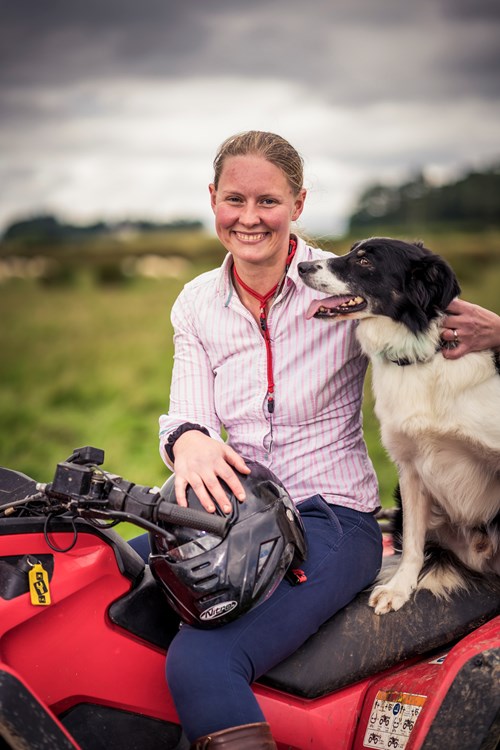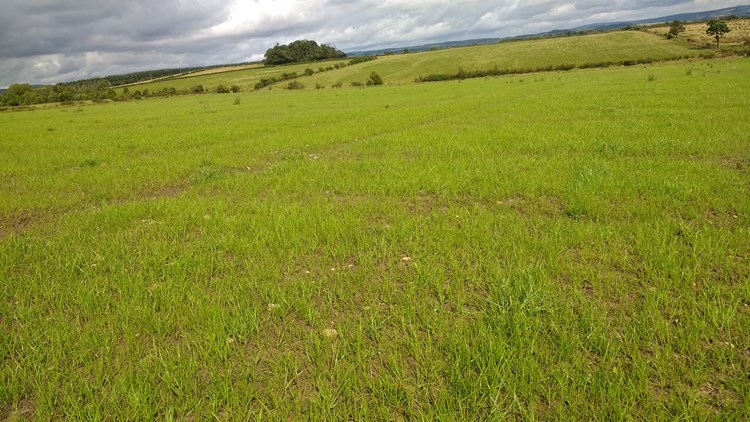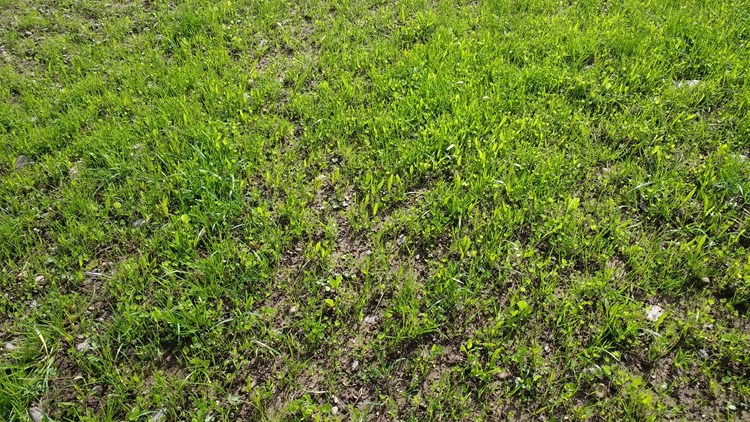Seed Mix Field Lab at Mouldyhills Farm
Five years ago, Mouldyhills Farm, was given to Langholm Farms Ltd to farm in hand for Buccleuch Estates Ltd, the farm was in very poor condition and still requires a lot of expenditure to get it back into working condition.
Mouldyhills is a sheep farm in an area known for its dairy. However, years of intensive grazing has left the ground wet, with poor fences and choked field drains. Since returning to the estate, a programme of soil, fence and drain restoration has been put in action in an effort to transform the farm and progress is being made slowly, the rushes being the hardest challenge when grazing is required year round.

Alice Muir, Assistant Farm Manager at Mouldyhills Farm
With an upcoming field lab event in September, we managed to speak to Assistant Farm Manager, Alice Muir, who has been leading the farm’s transformation over the last few years. Buccleuch became involved in a grassland trial four years ago when observing the benefits of rotational grazing at Bowhill. Alice says, that although the rotational grazing trial hasn’t been without its challenges, overall it has produced good results, with increases in stock carrying capacity on the farm and Mouldyhills has been trying this out for the past two years.
So, it was with this success in mind that Alice and her team set about trialling five different leys at the beginning of the year. Their focus: to find a combination that best suited the challenging demands of Mouldyhills.


The five plots, spread across two fields, included the following combinations:
- Herbal ley with 15 varieties of seed: designed to trial a great range of different species.
- Herbal ley with 7 varieties of seed: made specifically for the local conditions of Mouldyhills.
- Persistent rye grass mixture.
- High protein, rye grass mixture.
- Wet ground rye grass mixture.
Alice says the main objective of the trial is to see which ley mixture will best provide grass for over wintering. The farm will also be looking at whether the herbal or thicker bottomed rye grass leys can reduce poaching over winter. Alongside these priorities, the estate is monitoring livestock growth to see if lambs finish quicker on the herbal or the rye grass plots. Once the trial is complete the estate will pick the best performing ley to sow elsewhere on the farm.
‘We’re using soil testing, soil structure testing and Agrinet to allow us to check soil quality and track how much each ley has produced per day.’ Alice Muir, Assistant Farm Manager.
Alongside the ongoing trial, a new shepherd has joined the team, and Alice hopes, with these positive changes and increasing enthusiasm to trial new systems, that Mouldyhills has turned a significant corner.
Updates, results and reports will be posted on our field lab pages after the event and throughout the life of the field lab.

